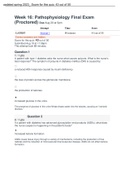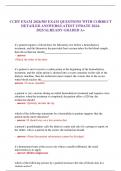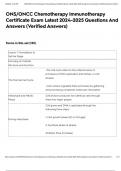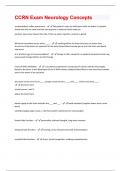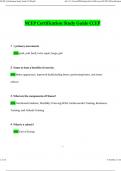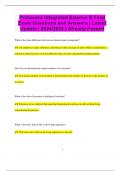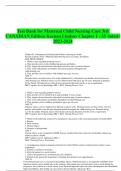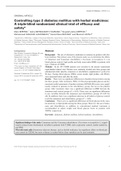Exam (elaborations)
SCI 225 Pathophysiology - Week 16: Pathophysiology Final Exam (Proctored) Score for this quiz: 43 out of 50
- Institution
- Nightingale College Utah
Week 16: Pathophysiology Final Exam (Proctored) Due Aug 20 at 5pm Attempt Time Score LATEST Attempt 1 89 minutes 43 out of 50 Correct answers are hidden. Score for this quiz: 43 out of 50 Submitted Aug 19 at 11:06pm This attempt took 89 minutes. Question 1 1 / 1 pts A patient with type 1 ...
[Show more]
